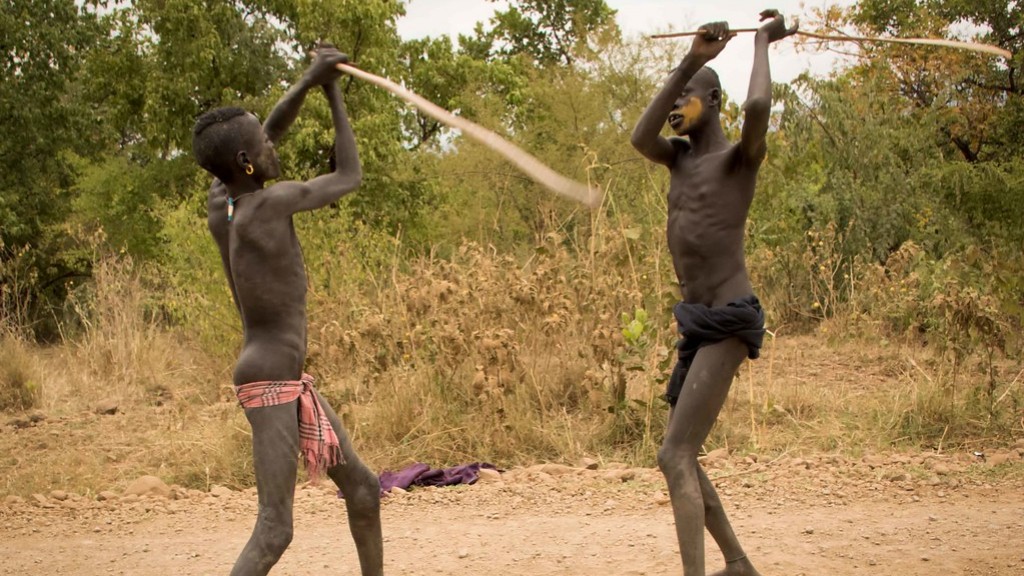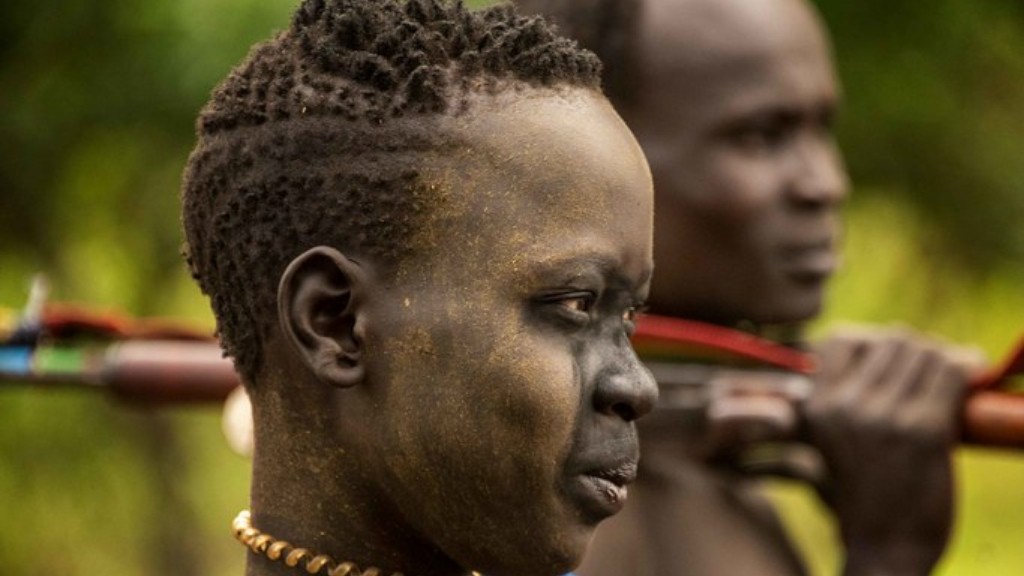Black Tribes in South Africa
South Africa is a diverse country with a rich cultural heritage. One of the prominent aspects of this heritage is the presence of various black tribes that have inhabited the region for centuries. These tribes have played a significant role in shaping South Africa’s history, traditions, and social dynamics. In this article, we explore some of the main black tribes in South Africa, shedding light on their unique characteristics and contributions to the nation.
One of the most well-known tribes in South Africa is the Zulu tribe. With a population of over 10 million, the Zulu people are the largest ethnic group in the country. They have a rich history dating back to the early 19th century when their kingdom was established under King Shaka. Known for their vibrant culture, traditional music, and intricate beadwork, the Zulu tribe continues to be an integral part of South African society.
Another prominent tribe in South Africa is the Xhosa tribe. With a population of around 8 million, the Xhosa people are known for their distinct language, isiXhosa, which is one of South Africa’s official languages. The Xhosa tribe has produced notable leaders, such as Nelson Mandela and Thabo Mbeki, who played crucial roles in South Africa’s liberation struggle against apartheid. Their rich cultural practices, including the Xhosa initiation ceremonies, are highly regarded and celebrated.
The Sotho-Tswana people form another significant black tribe in South Africa. This tribe consists of different sub-groups, including the Southern Sotho, Northern Sotho, and Tswana. Their cultural practices, such as the Basotho blankets and traditional dances like the Moropa, showcase their vibrant heritage. The Sotho-Tswana people make up a substantial portion of the population in the Free State and North West provinces, where they have contributed immensely to the agricultural and mining sectors.
The Venda tribe, located in the northern part of South Africa, has a distinct cultural identity. They are renowned for their arts and crafts, including pottery, woodcarving, and traditional dance forms like the Tshikona. The Vendas have a unique system of governance known as the Dzivha la Venda, which combines traditional and modern elements. Their cultural practices, rich folklore, and beautiful landscape attract both local and international tourists.
Experts believe that identifying and preserving the cultural heritage of these black tribes is crucial for promoting inclusivity and social cohesion in South Africa. It allows for a deeper understanding of the nation’s diverse history and fosters a sense of pride among its people. By embracing their traditions, South Africans can create an inclusive society that respects and values the contributions of all tribes.
The Role of Black Tribes in South Africa’s Economy
Black tribes in South Africa have made significant contributions to the country’s economy. Their involvement in various sectors, such as agriculture, mining, and tourism, has been instrumental in driving growth and development. For instance, the Sotho-Tswana people have played a crucial role in the agricultural sector, particularly in the production of maize and livestock. Their expertise in farming techniques has contributed to food security and economic stability in the regions they inhabit.
Furthermore, black tribes have been actively involved in the mining industry, which has been a cornerstone of South Africa’s economy for decades. The Zulu tribe, for instance, has a strong presence in KwaZulu-Natal, where coal mining and quarrying are prevalent. Their contribution to the mining sector has not only bolstered the economy but has also provided employment opportunities for many local communities.
The cultural heritage of black tribes also plays a significant role in South Africa’s tourism industry. The authenticity and vibrancy of their traditions attract both domestic and international tourists who are eager to experience the richness of African culture. Through cultural tourism, black tribes have created economic opportunities, such as craft markets, cultural festivals, and guided tours, which generate income and promote local entrepreneurship.
Overall, the active participation of black tribes in South Africa’s economy highlights their resilience, resourcefulness, and invaluable contributions. By recognizing and supporting their economic endeavors, the country can ensure sustainable development and empowerment for all its citizens.
The Impact of Colonialism on Black Tribes
It is important to acknowledge that the history of black tribes in South Africa has been significantly impacted by colonialism and its lasting effects. The arrival of European settlers, their land dispossession policies, and the subsequent apartheid regime had profound negative consequences on the socio-economic well-being of black tribes.
During colonialism, black tribes faced forced removals from their ancestral lands, leading to the disruption of their traditional ways of life. This resulted in the loss of cultural practices, agricultural knowledge, and self-sufficiency. Many black communities were relocated to overcrowded and under-resourced areas, exacerbating poverty and inequality.
The apartheid system, which enforced racial segregation and discrimination, further marginalized black tribes. They were subjected to discriminatory laws, limited access to education and healthcare, and restricted employment opportunities. This systematic oppression caused immense social and psychological trauma within these communities, impacting their overall well-being and socio-economic mobility.
Although significant progress has been made since the end of apartheid, the effects of colonialism and historical injustices still persist. Efforts are being made to address these issues through land reform, economic empowerment programs, and socio-political transformation. However, it is crucial to continue supporting initiatives that uplift black tribes and work towards achieving true equality and reconciliation.
The Importance of preserving Black Tribal Languages
One crucial aspect of preserving the cultural heritage of black tribes in South Africa is the preservation and promotion of their languages. Language plays a significant role in identity formation, social cohesion, and knowledge transmission within communities.
Many black tribal languages, such as isiXhosa, isiZulu, and Sesotho, hold intricate meanings, histories, and unique linguistic features that are integral to the identity and cultural expression of these communities. By preserving these languages, South Africa can ensure the continuity of cultural practices, stories, and values that have been passed down through generations.
Experts argue that language preservation is not only important for cultural reasons but also for educational and economic benefits. Research shows that bilingual individuals have cognitive advantages, such as enhanced problem-solving skills and greater creativity. Therefore, promoting and investing in the learning of black tribal languages can have positive effects on academic achievement and overall human development.
Furthermore, from an economic perspective, preserving black tribal languages can contribute to the tourism industry. Tourists are increasingly seeking authentic cultural experiences, and the ability to communicate and engage with local communities in their native languages enhances the overall visitor experience. Consequently, this can drive tourism revenues, create employment opportunities, and further support local economic development.
The Ongoing Struggle for Social Equality and Inclusion
Despite South Africa’s progress towards social equality since the end of apartheid, significant challenges remain in achieving true inclusion for black tribes. Structural inequalities, high levels of poverty, and limited access to quality education and healthcare continue to hinder the advancement of these communities.
The legacies of colonialism and apartheid continue to manifest in socio-economic disparities, disproportionately affecting black tribes. This necessitates ongoing efforts to address systemic issues, such as equitable resource allocation, skills development, and improved service delivery in marginalized areas.
Additionally, fostering understanding, empathy, and respect among diverse ethnic groups is crucial for building a cohesive society. Education plays a vital role in promoting social cohesion by teaching the history, culture, and contributions of all tribes. By embracing diversity and actively working towards inclusivity, South Africa can create a more prosperous and harmonious nation for present and future generations.





